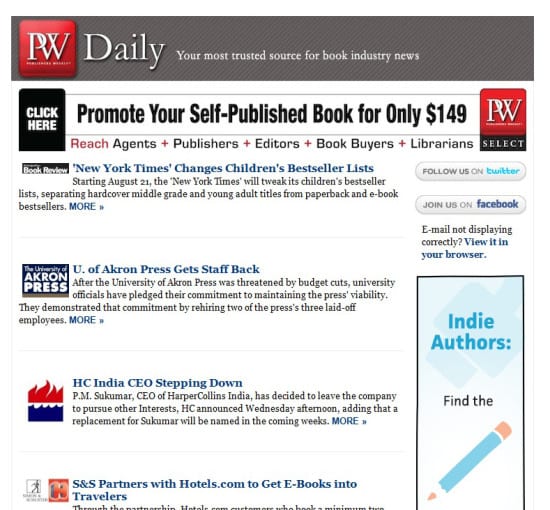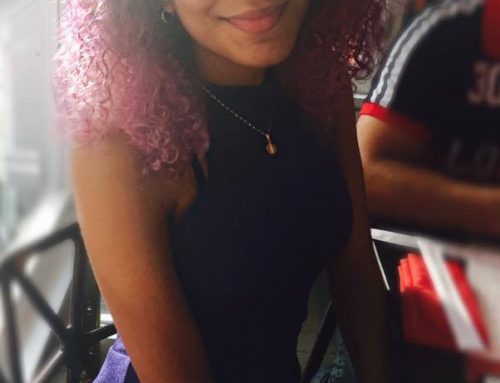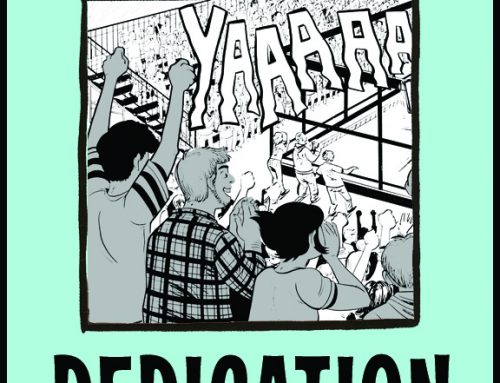test heading
(the top half of last Thursday’s free PW Daily e-newsletter)
Go to conventions! — that’s something that we frequently hear as advice for aspiring creators. And it’s good advice — conventions are a great place to show off your work, meet people in the industry, and see what kind of authors are getting published and what kind of books they’re publishing.
But depending on where you live and what your resources are, conventions can be really expensive — to travel to, to attend, and to exhibit at.
There’s good news! At least of the things that conventions are really good at — learning more about what’s happening in the industry — are is pretty easy to accomplish without having to travel far from home. You do have to put some effort in, but professional hint: to accomplish anything, it’s necessary 99.9% of the time to put effort in.
Here are three ways to brush up on your comics/books industry knowledge without having to travel away from your home town.
E-newsletters!
In the header of this post, you’ll see the top half of one of last week’s issues of Publishers Weekly‘s daily e-newsletter. That’s one of the three daily e-newsletters I subscribe to, and I subscribe to more that I get on a weekly, biweekly, monthly, or seasonal basis.
What that means is that every morning in my inbox, I have a short precis of what the publishing industry is doing. Reading through it every day (even as a person who doesn’t work in the publishing industry) really helps you get a sense of who the publishers are, who important authors are, and what important issues the publishing industry is dealing with, as well as a general idea of the health of the overall publishing industry.
All of that can be super-helpful in deciding what publisher you want to work with, as well as what terms you want on any book contracts you have!
Newsletters I recommend include any PW newsletters targeted to your interest (I subscribe to comics world and to kids), Shelf Awareness, the Diamond e-newsletters if you’re interested in comics, ICv2, and any book trade publications you’re interested in — Booklist, Kirkus, SLJ, etc.
Local bookstore/comics store!
Work at your local bookstore or comics store. Even if it’s just one day a week — and even if they don’t have money to pay you — working at a store will give you unparalleled access to both the publisher and the consumer end of the industry. Publishers because it lets you see on a week-by-week basis what books are being published — and consumers because it lets you see on a week-by-week basis what people are reading and buying and asking about (and what they’re not reading and buying and asking about)!
And if your local store doesn’t need help right now — try during Free Comic Book Day, Independent Bookstore Day, or during the holidays. Everyone always needs extra help for days that are going to be completely crazy!
If what you want to do is tell your kind of story in your kind of style (and this is frequently what a publisher will want, too — that’s why most books read and look different from each other), why is gaining this knowledge helpful? First, it lets you identify authors and publishers whose work you feel yours fits in with. That can give you a good idea of what publisher may be right for you (and further down the line, which authors may be good choices for blurbing your book). Second, knowing what kind of books are really working can give you inspiration — as well as a bandwagon to jump on. And knowing what kind of books people are reading and buying and asking about also can help you see holes in the market — if you’re like, ‘there haven’t been any great mysteries published in the past six months,’ and that’s what you want to do, that’s something you can capitalize on.
Read everything!
One of the most important things that helps you to be a writer is to read. Read everything. All the time.
If you want to write nonfiction, read as many nonfiction books as you can get your hands on. If you want to write fantasy, read every fantasy book you can find in your library. If you’re making comics, read every single comic you can.
Reading books improves your vocabulary and can help your storytelling skill, especially if you’re reading critically, examining how the author is making their story work as they go. And like working at a bookstore, it’ll give you a good idea of what publishers are most suited to you. Bonus: it probably also means that you won’t be accidentally writing the exact same book that someone else has already written.
You don’t have to know about the industry to get your book published. But it can make things a lot easier for you to deal with the publishing process if you have a basic idea of how it works before subjecting yourself to it.





